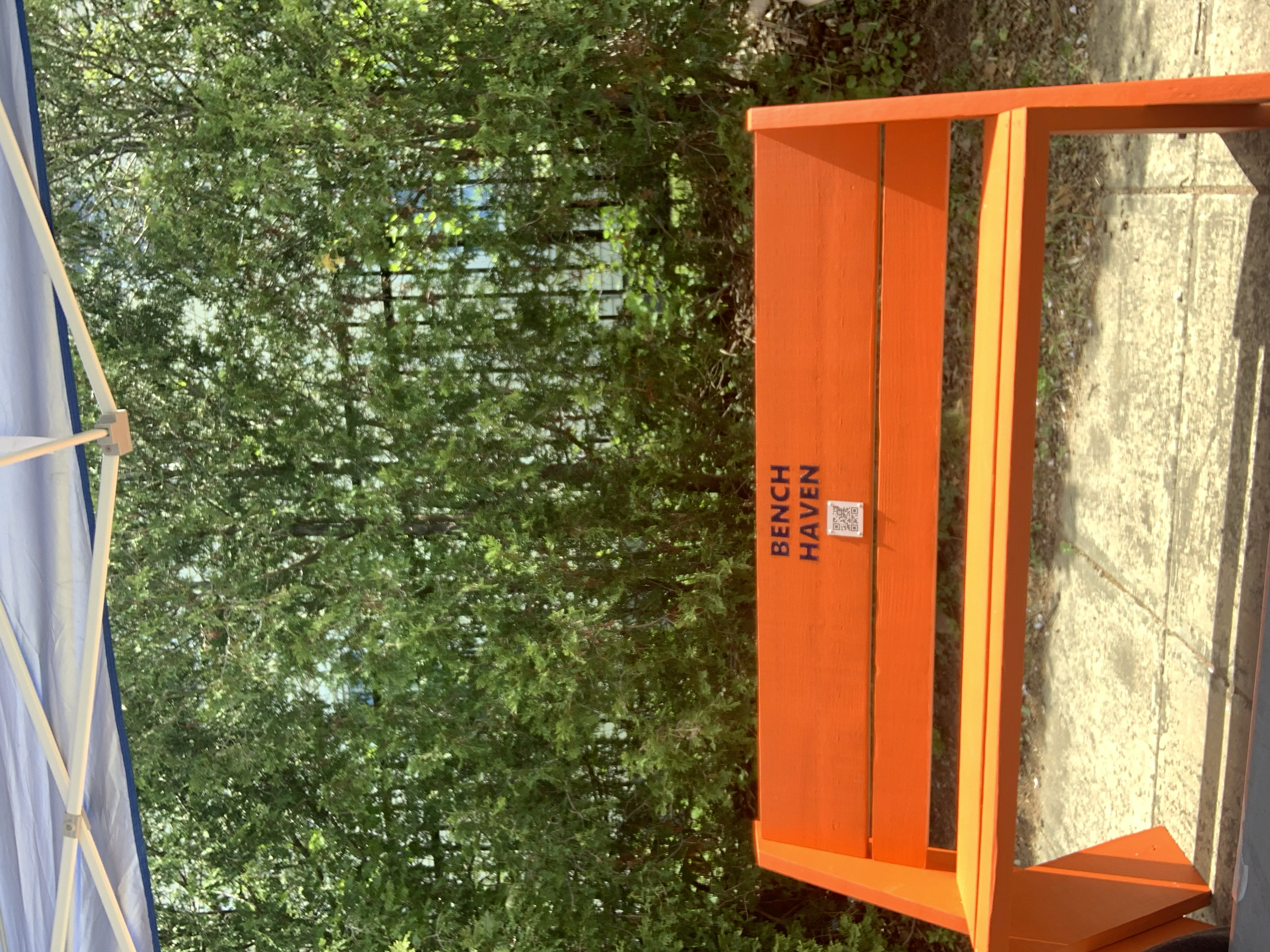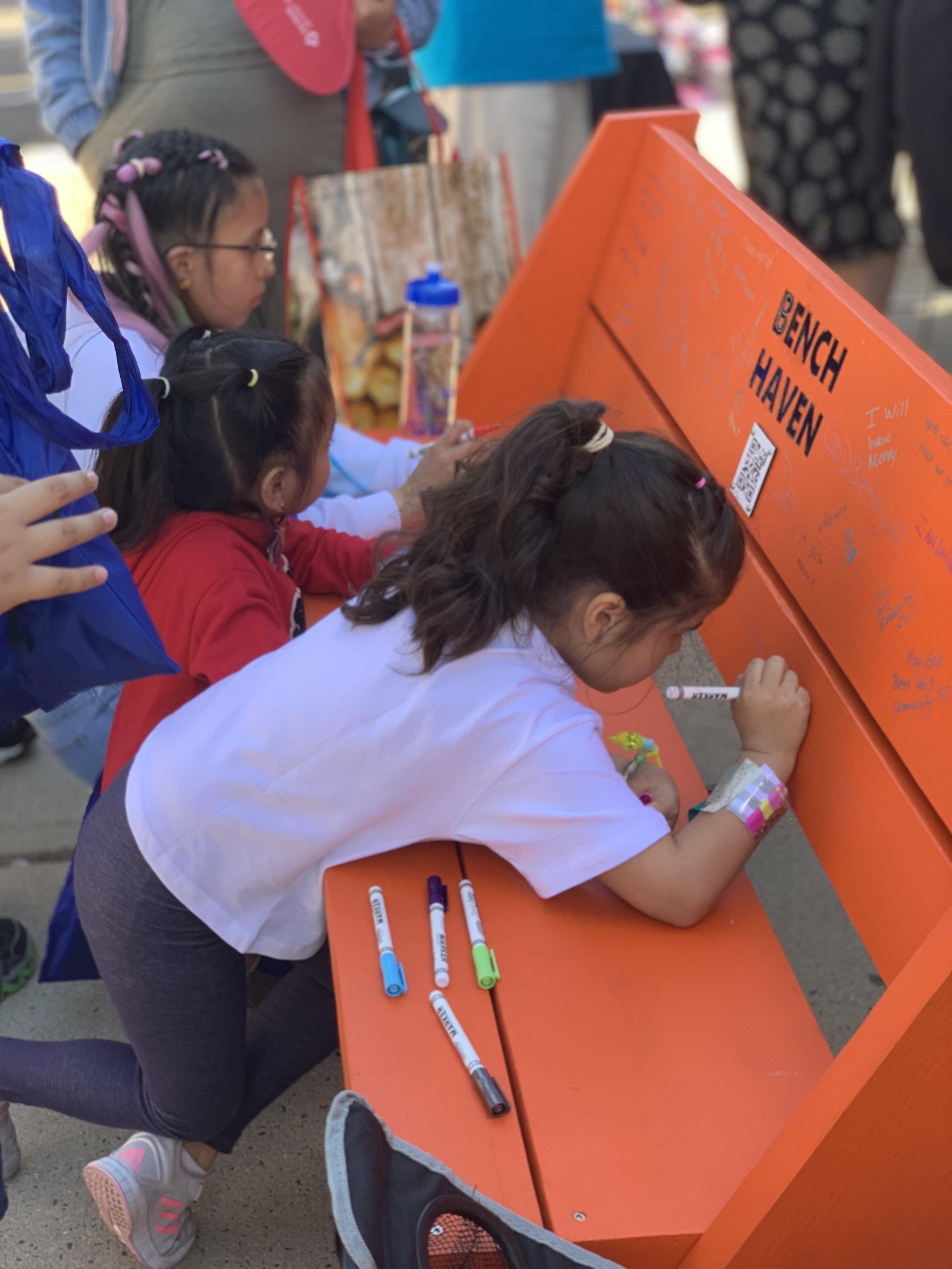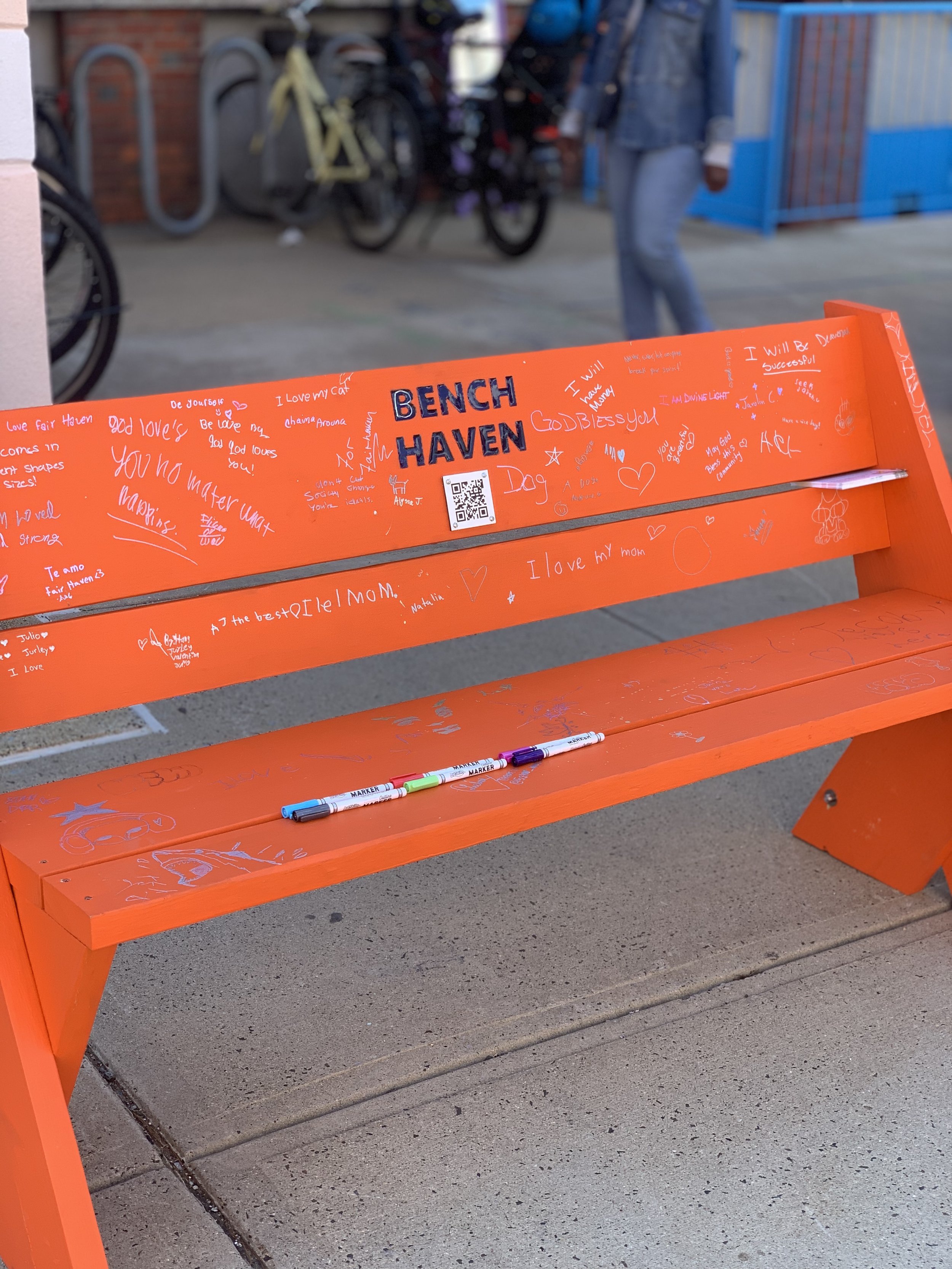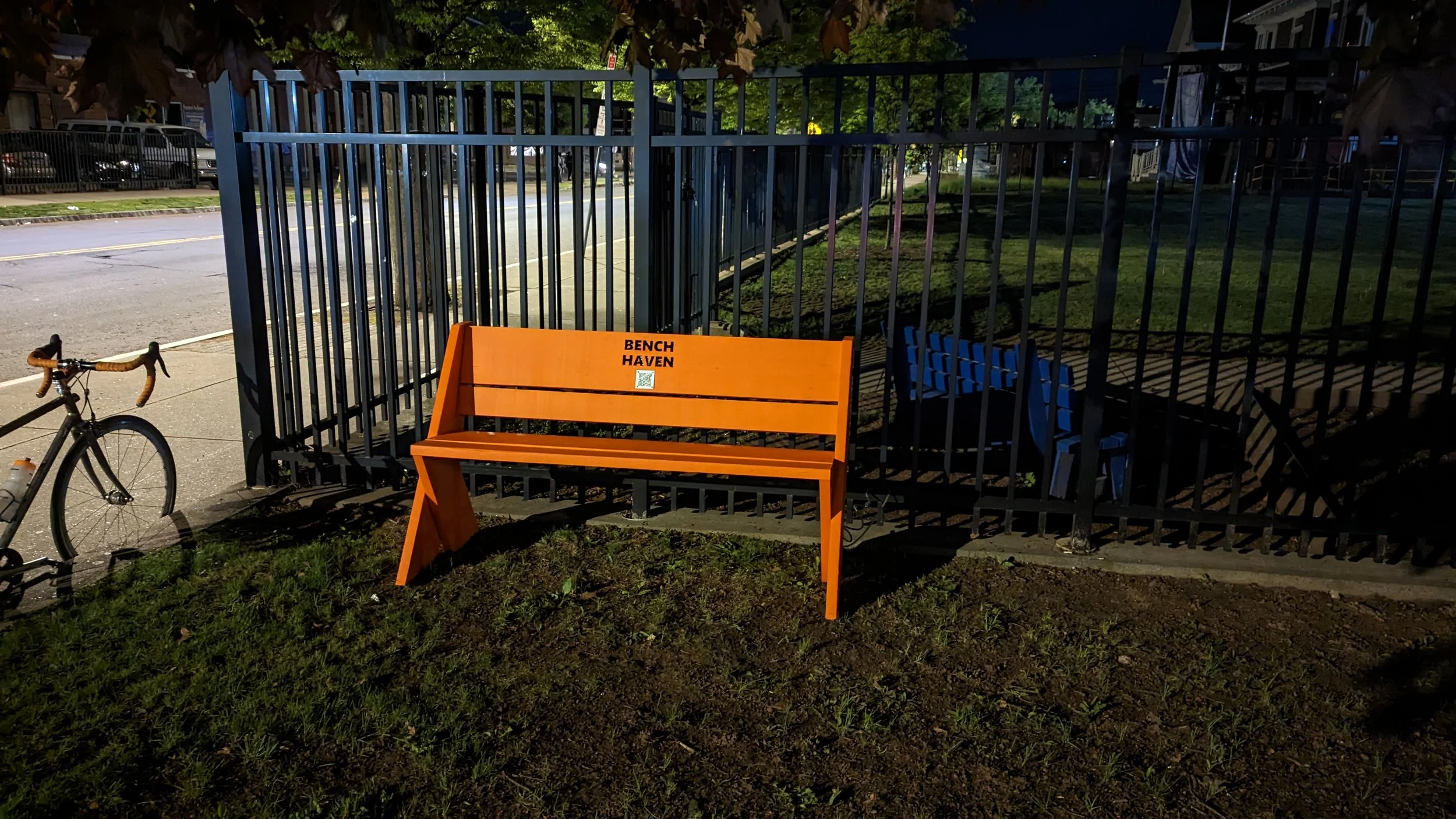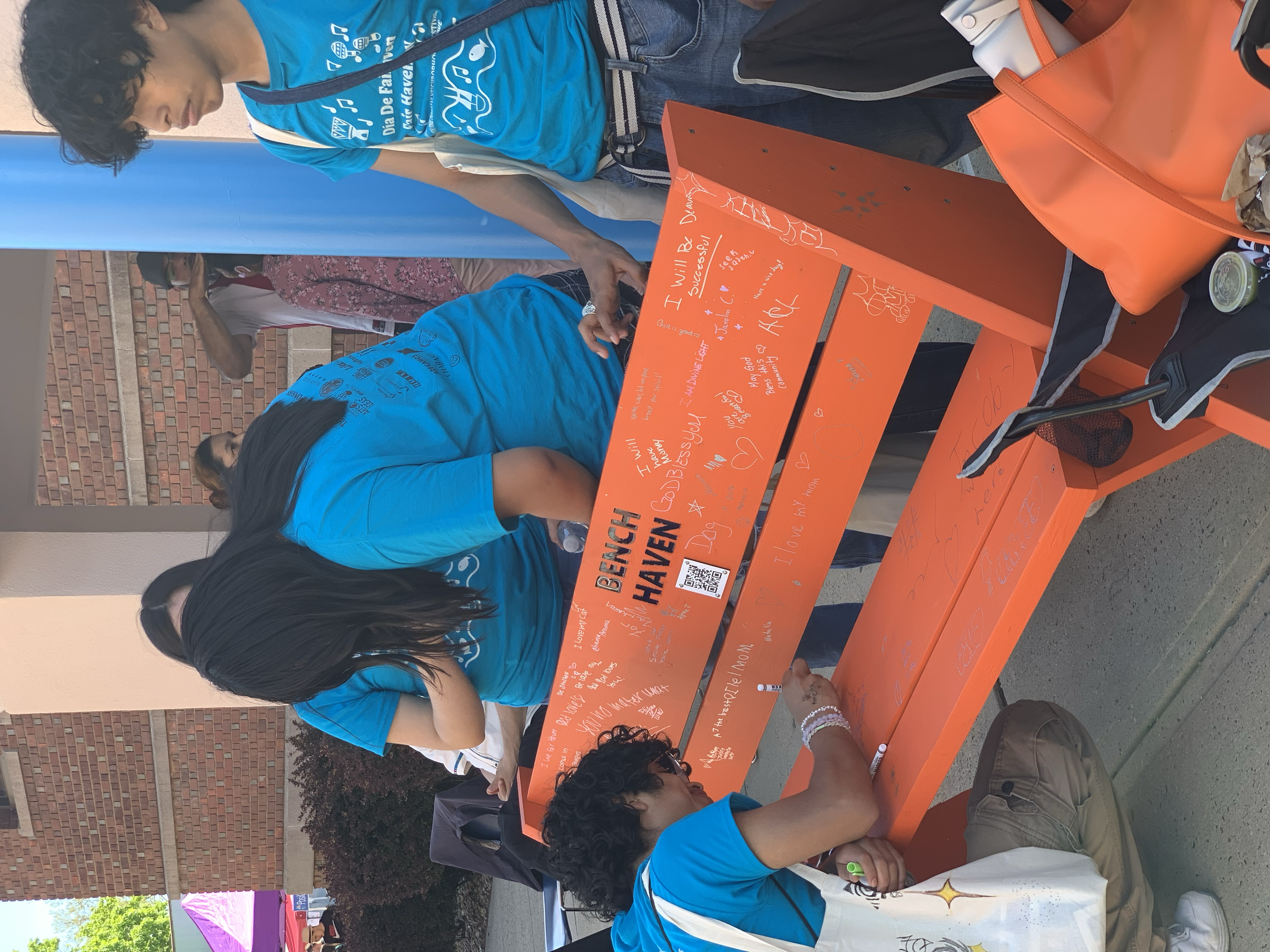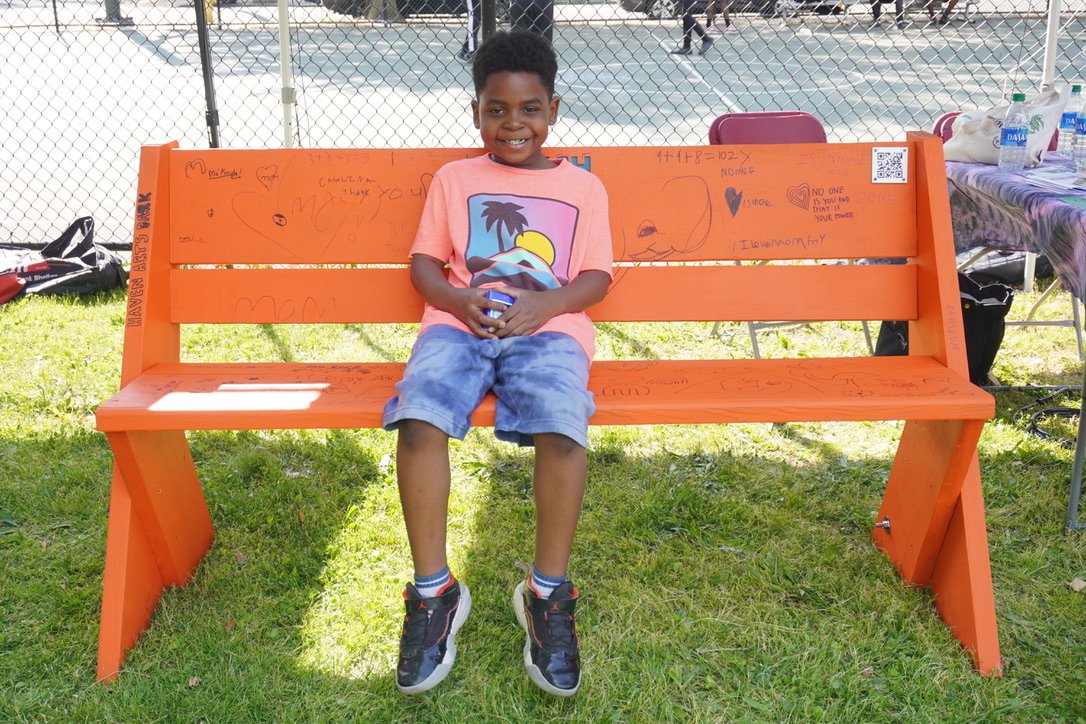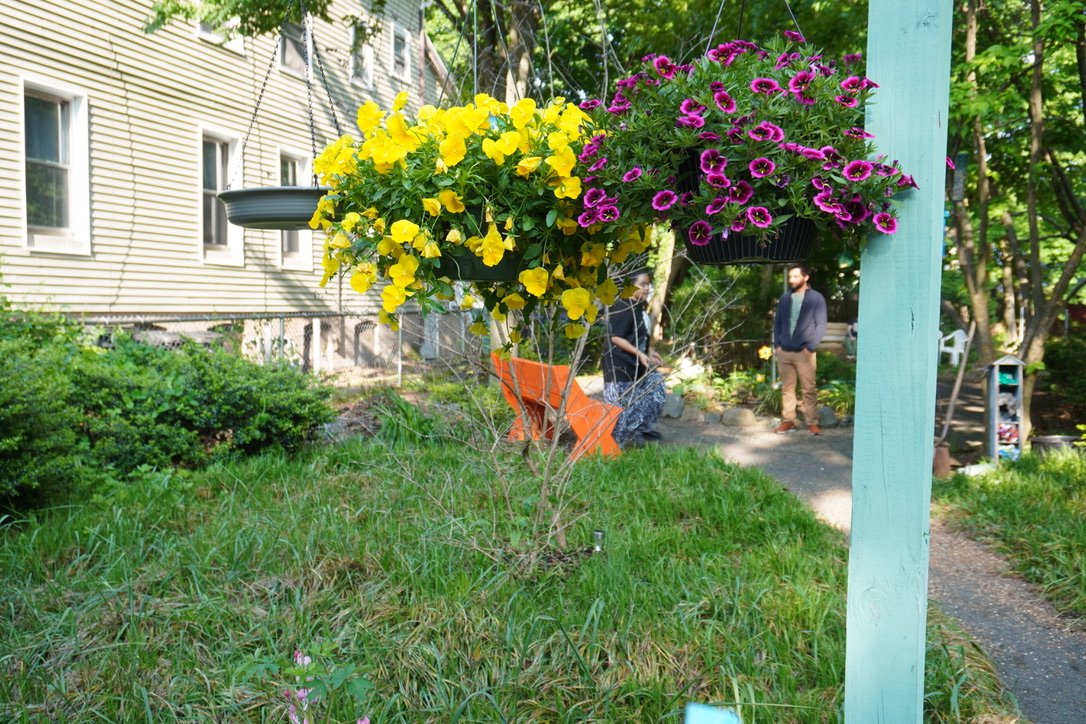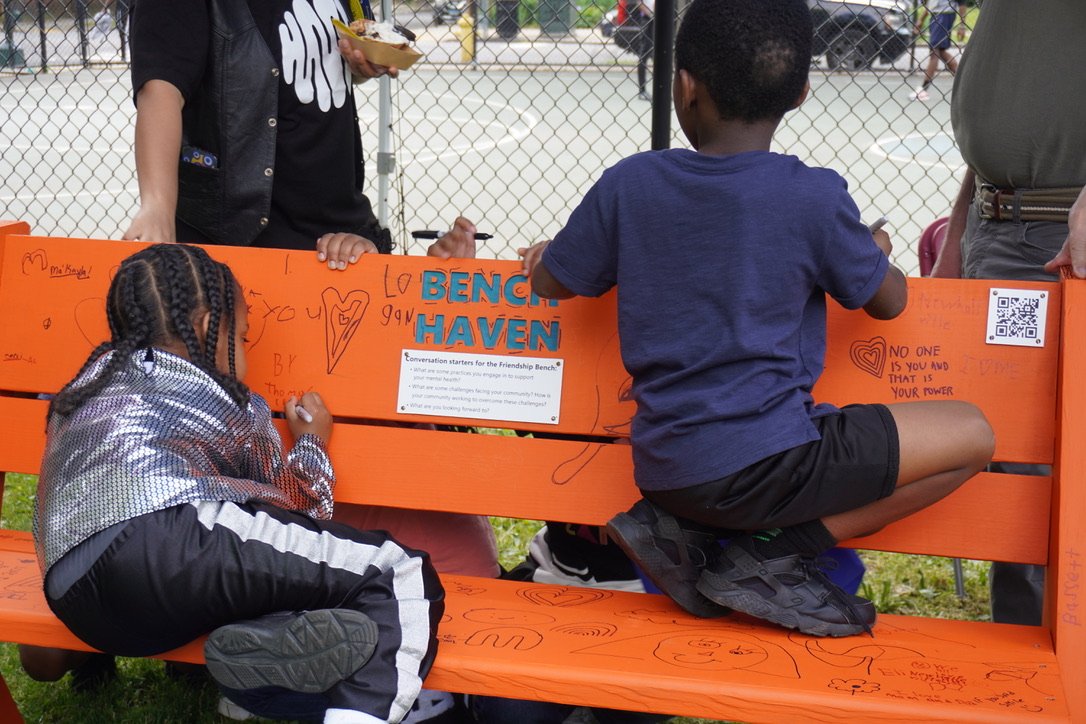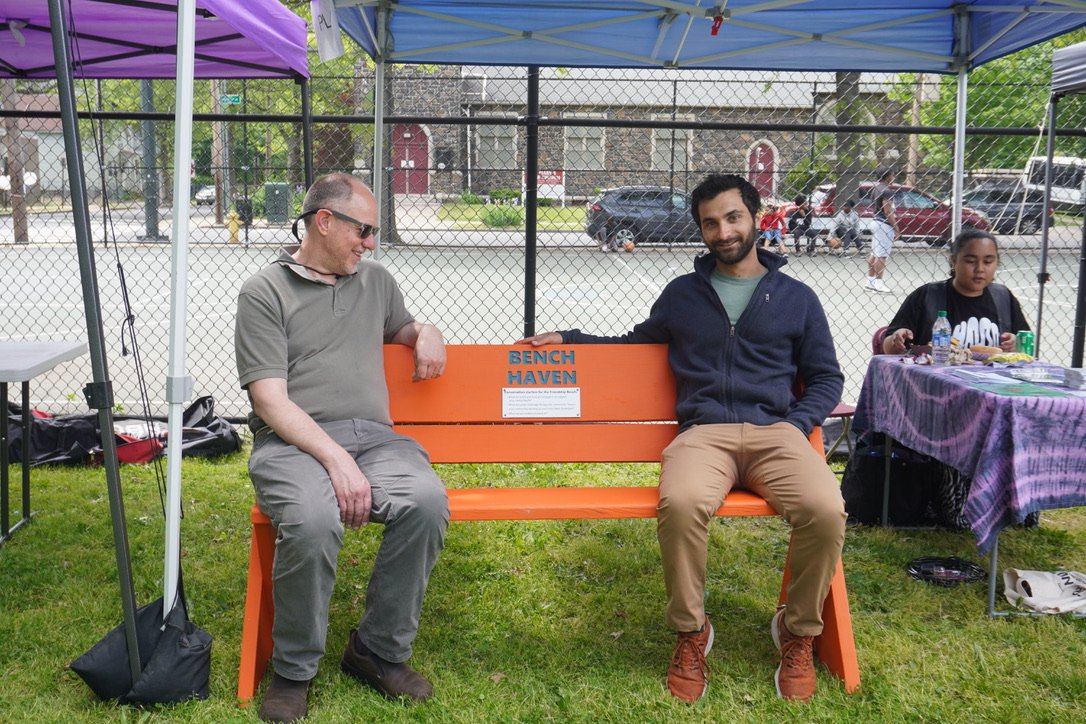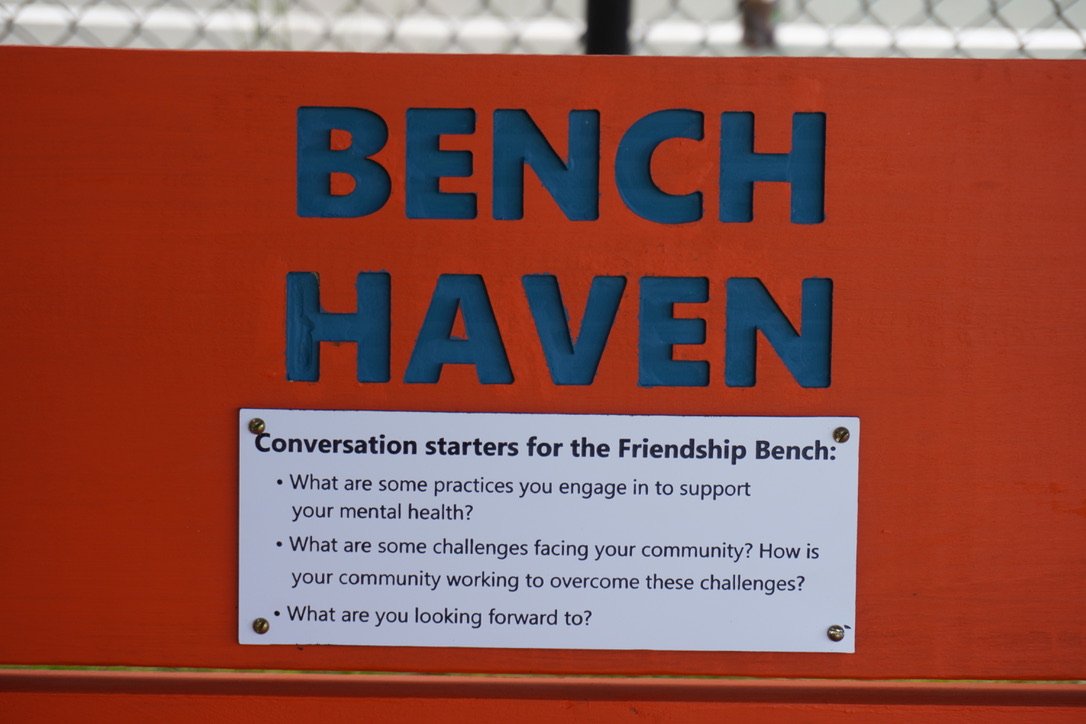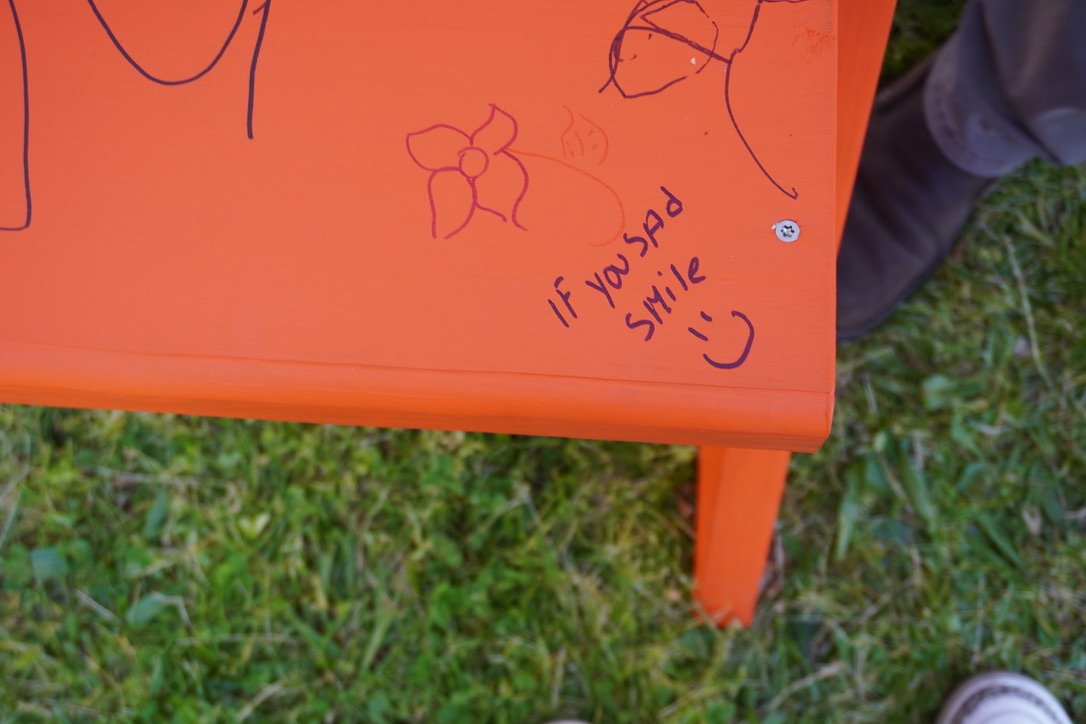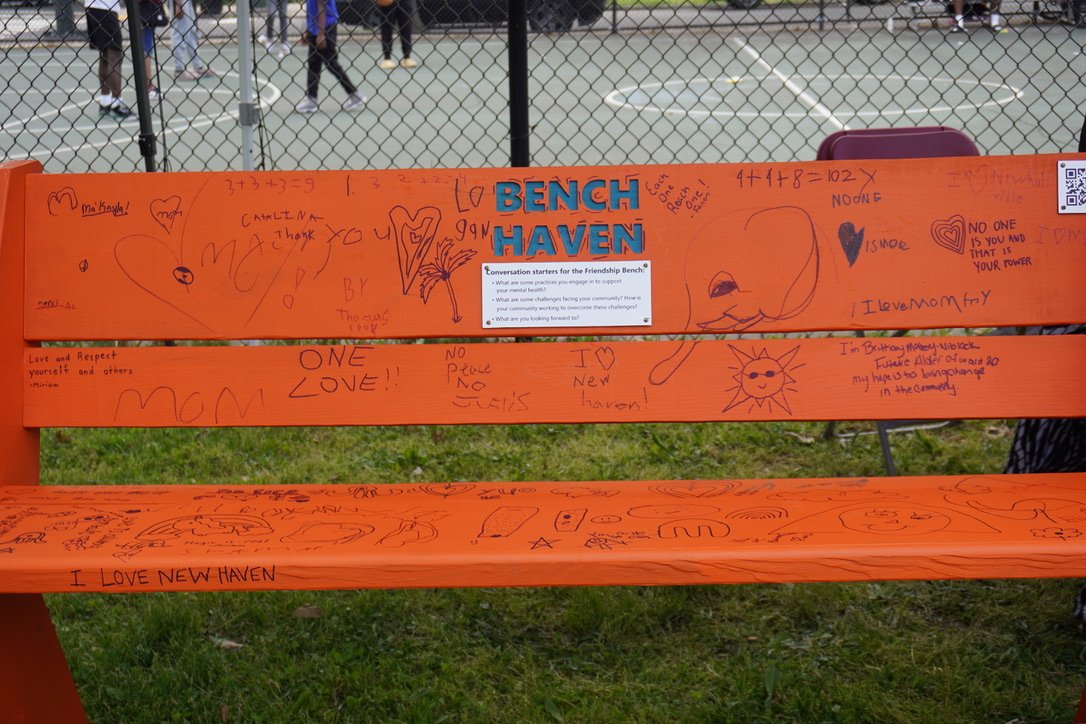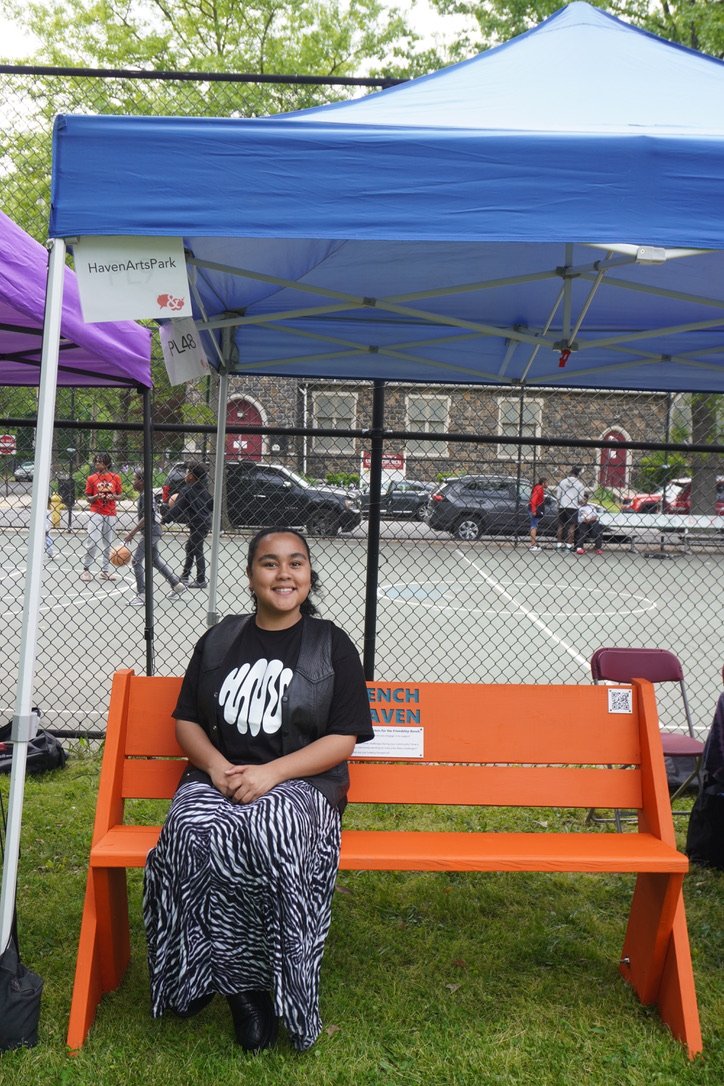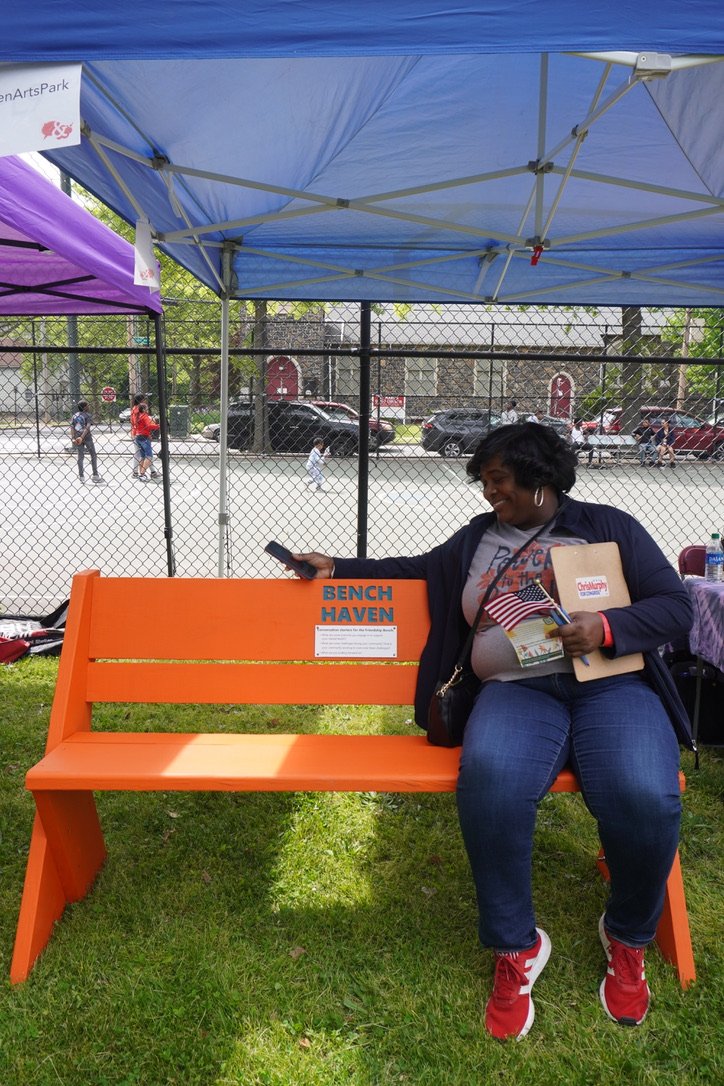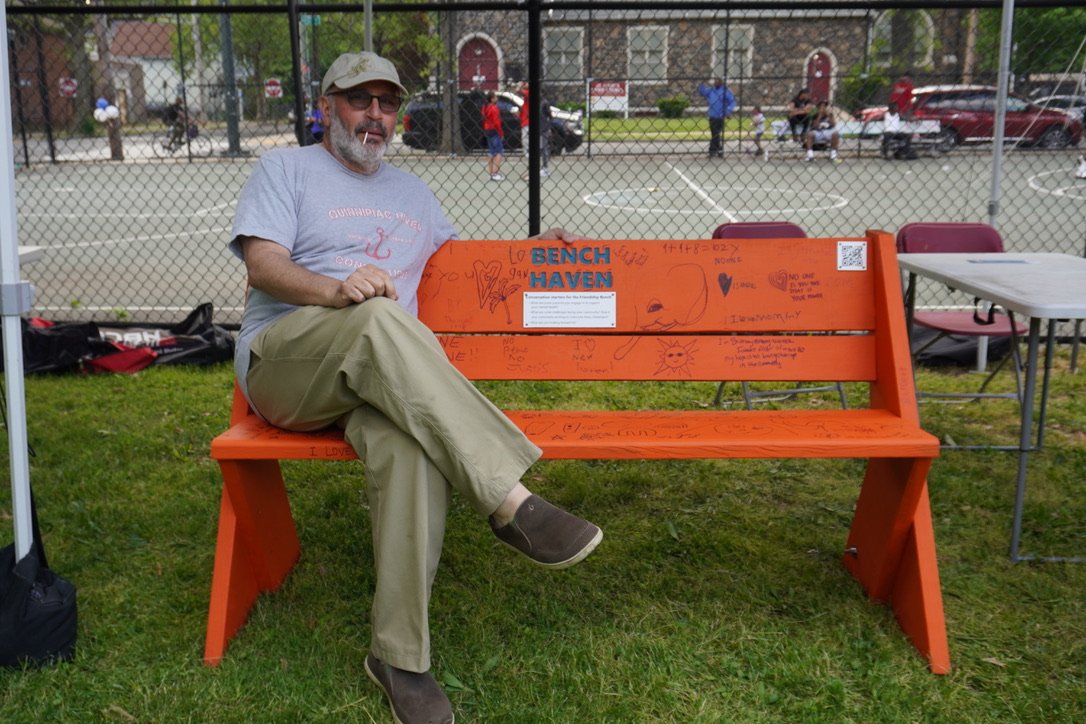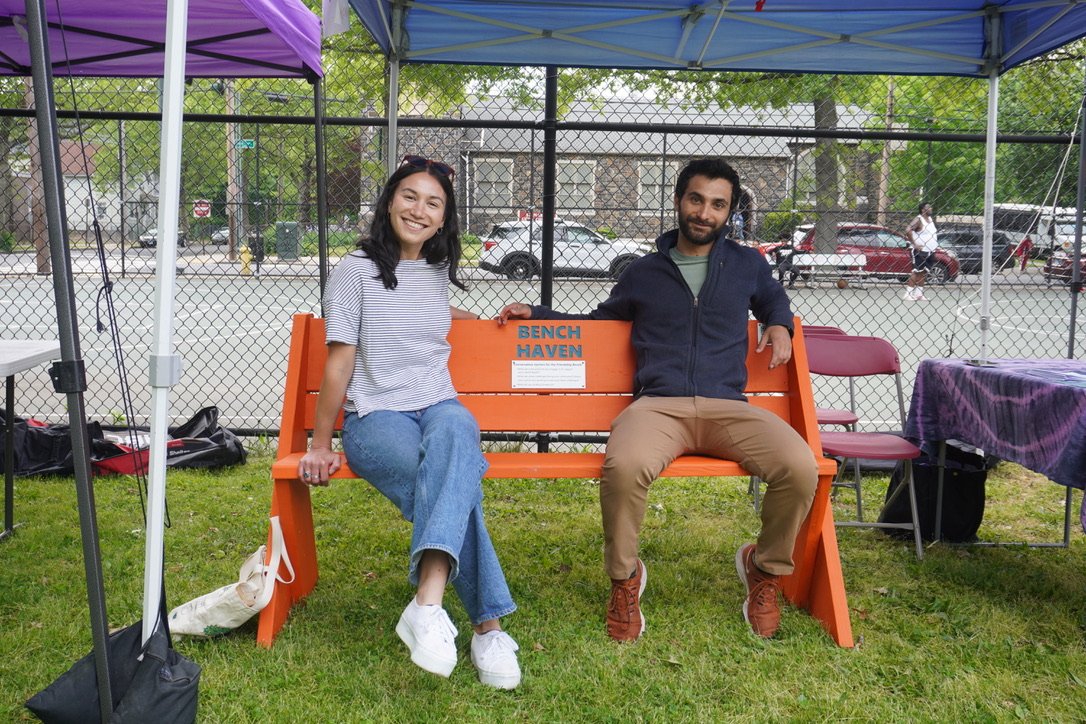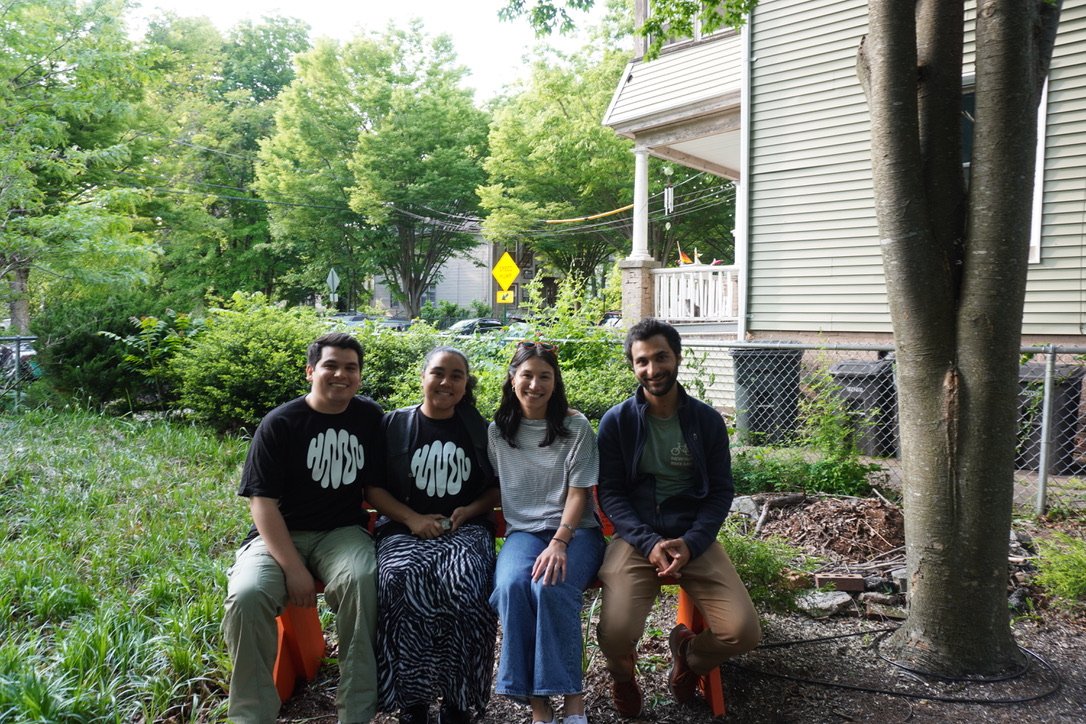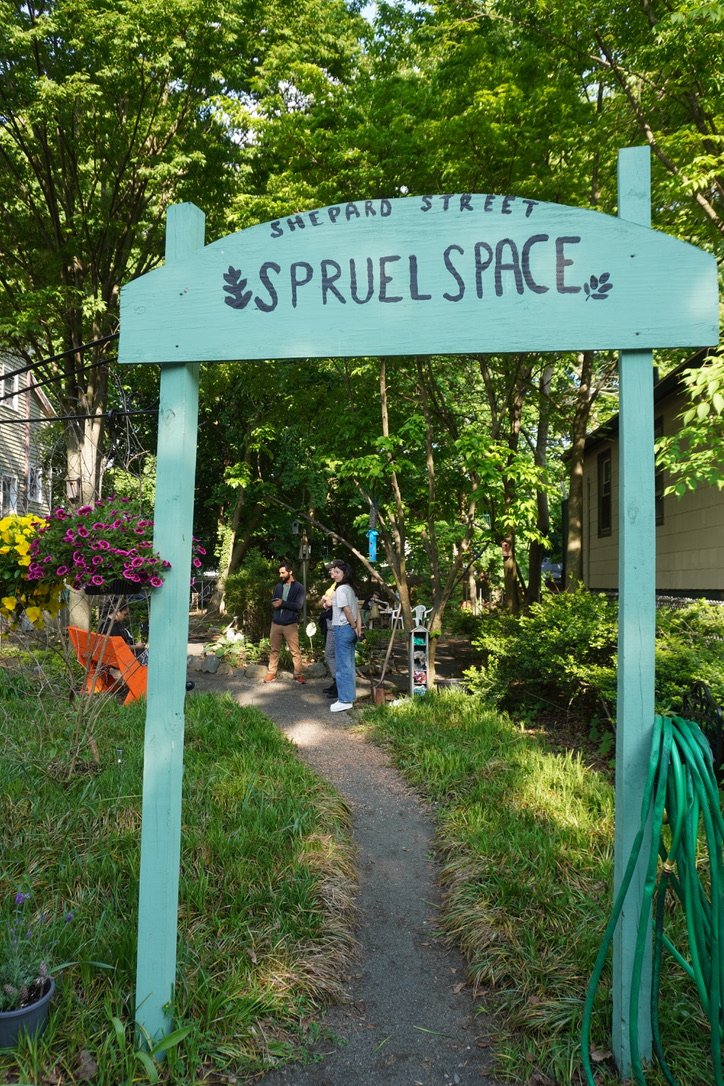WELCOME TO BENCH HAVEN!
beautiful, comfortable spaces for neighbors to connect with each other’s shared humanity.
we invite you to sit, reflect, and connect!
ABOUT THE BENCHES
Bench Haven connects neighbors through meaningful conversations at the intersection of art, healing, resilience, and the meaning of community. Inspired by the global movement of ‘Friendship Benches’ and local New Haven artists, we celebrate the simplicity of benches and their ability to foster space and time for reflection, conversation, and connection.
Benches are one of the simplest pieces of urban architecture and yet their impact can be lasting and profound. For example, benches offer a comfortable seat for residents who are waiting for the bus. Benches serve as locations for reflective rest in our city parks and outdoor spaces. Benches can be pitstops outside local businesses to eat an ice cream cone or read a book. Benches connect us to strangers by facilitating spontaneous meetings and conversations. Benches beautify a place by creating a welcoming environment for all to slow down, reflect, and connect.
CONVERSATION STARTERS…..
What does the phrase mental health mean to you? What are some practices you engage in to support your mental health?
What are some challenges facing your community or neighborhood? How is your community working to overcome these challenges?
What does healing look like for your? What about for your community?
What role does art play in well-being and healing for you?
-
Reaching out to the person next to you to ask “Are you OK?” is a simple yet meaningful gesture that can help promote our mental health. This idea is at the heart of the Friendship Benches, an international movement first developed in Zimbabwe to bridge the mental health treatment gap. The original Friendship Bench project trained grandmothers (known as “The Grannies”) and other trusted elders to counsel and support mental health by meeting individuals on wooden benches around health clinics. This model has been adapted to communities across the world, including New York City where peers with lived experience of a mental health challenge sit on benches and offer a listening ear and connections to community resources.
In Zimbabwe, The Grannies receive about two weeks of training, to understand how to recognize signs and symptoms of common mental health conditions like depression and learn about problem-solving therapy. Research shows that this intervention can support people struggling with common mental health disorders, and effectively provide treatment via lay health workers to people who otherwise would not be able to access treatment. This type of intervention is called “task-sharing” or “task- shifting” and refers to a model where certain mental health “tasks” such as screening and supportivelistening are shared with workers not traditionally considered part of the mental health workforce. Task- sharing is incredibly useful in settings where psychiatrists, nurse practitioners, and other clinicians may not be accessible.
-
Similar to the Friendship Benches around the world, our project aims to connect residents across neighborhoods through meaningful conversations focused on healing, resilience, and the meaning of community. We’ve also decided to weave in the important theme of art because in early discussions about Friendship Benches, many of our most enthusiastic partners were part of our thriving arts community. As our Friendship Bench vision crystalized, it was clear that arts, healing, and well-being all go hand-in-hand and we are excited to share a Friendship Bench model that emphasizes the role of creativity in our individual and collective health.
As such, we have drawn inspiration from many local artists, including Babz Rawls, whose own version of a friendship bench was displayed a local exhibit “Freedom Dreams” exploring themes of self-reflection and healing. Babz welcomed visitors to sit with her and “hold hands and embrace on a bench painted with words of encouragement and affirmation” as a demonstration of the power of connection and radical Black Joy. Babz herself was inspired by another local artist, Linda Mickens whose Angel Bench sits at the local bookstore, Possible Futures. Clearly, both the simplicity and expansive opportunities of benches has been appreciated by artists, healers, mental health professionals, and residents alike!
-
For many of us, the connection between creativity and mental health feels intuitive. Whether its dancing, painting, creating music, or something else, creating art can help us feel calm, inspired, proud, joyful, and a full range of other emotions. Creating your own art or enjoying the art of others can help us feel a sense of purpose, a connection to a broader community, and encourage self-reflection. Art also tells us stories of personal struggles and provides hope for collective healing. Our hope is that you’ll join a neighbor on a friendship bench and through conversation explore how mental health and artistic expression are connected for you and your community.
-
This project is a collaboration between Haven Arts Park, CMHC Foundation, MakeHaven, International Festival of Arts and Ideas, Arts Council, and the City’s Office of Community Mental Health Initiatives, and local New Haven artists.
We would like to thank the neighborhood planning committees in Fair Haven, The Hill, Newhallville, West Hills, and Dixwell for inviting us to share Bench Haven at each of their festivals.
-
Our current project includes bringing Friendship Benches to six neighborhoods across New Haven. We’d love to continue co-designing, building, and installing more benches across our city to encourage connection and community! Please contact us at typhanae@onmemory.org or lmitchell@newhavenct.gov if you are interested in building a Friendship Bench to your neighborhood, business, or community.
